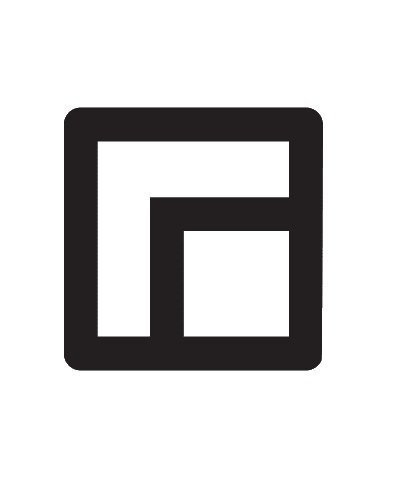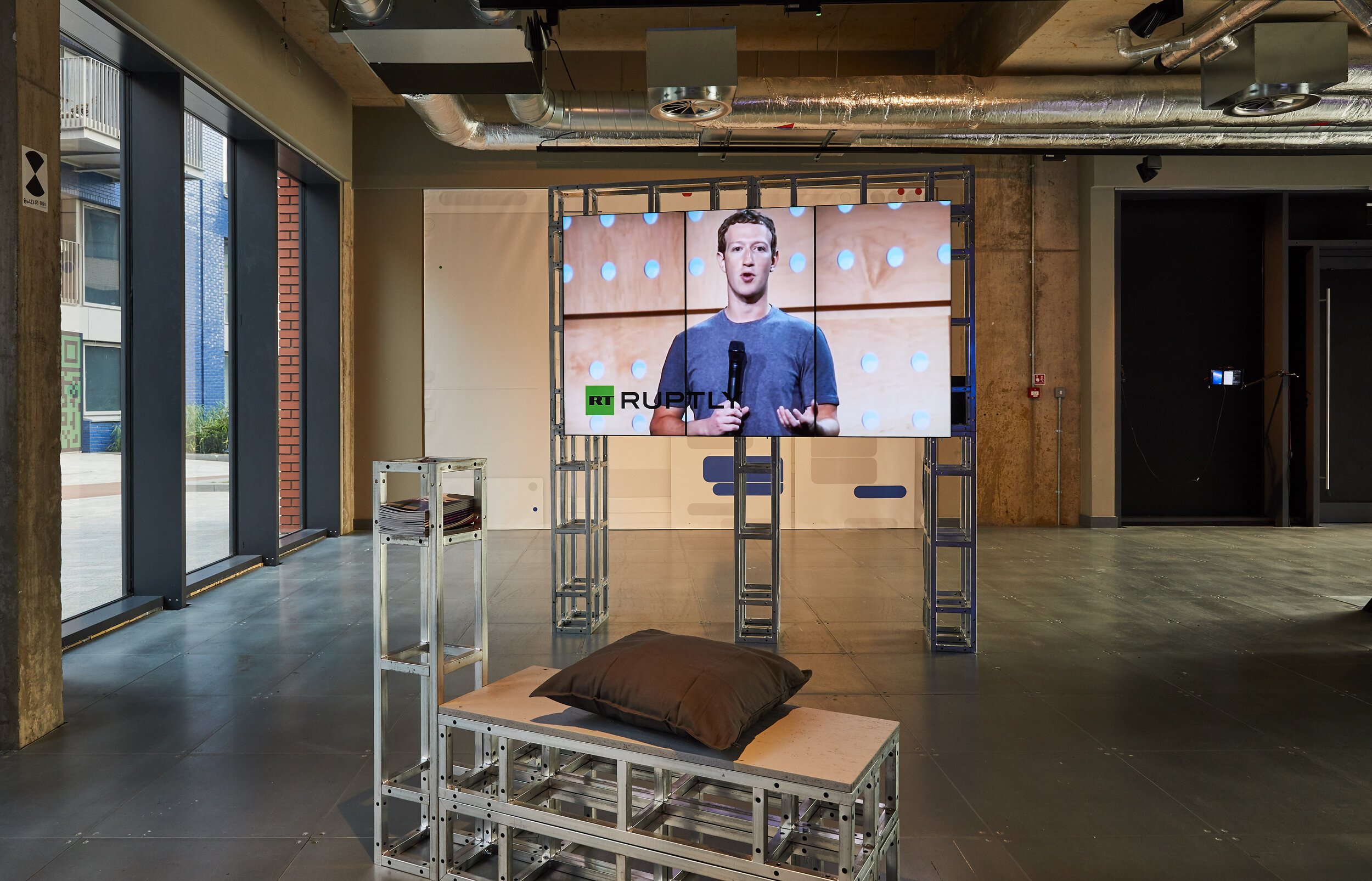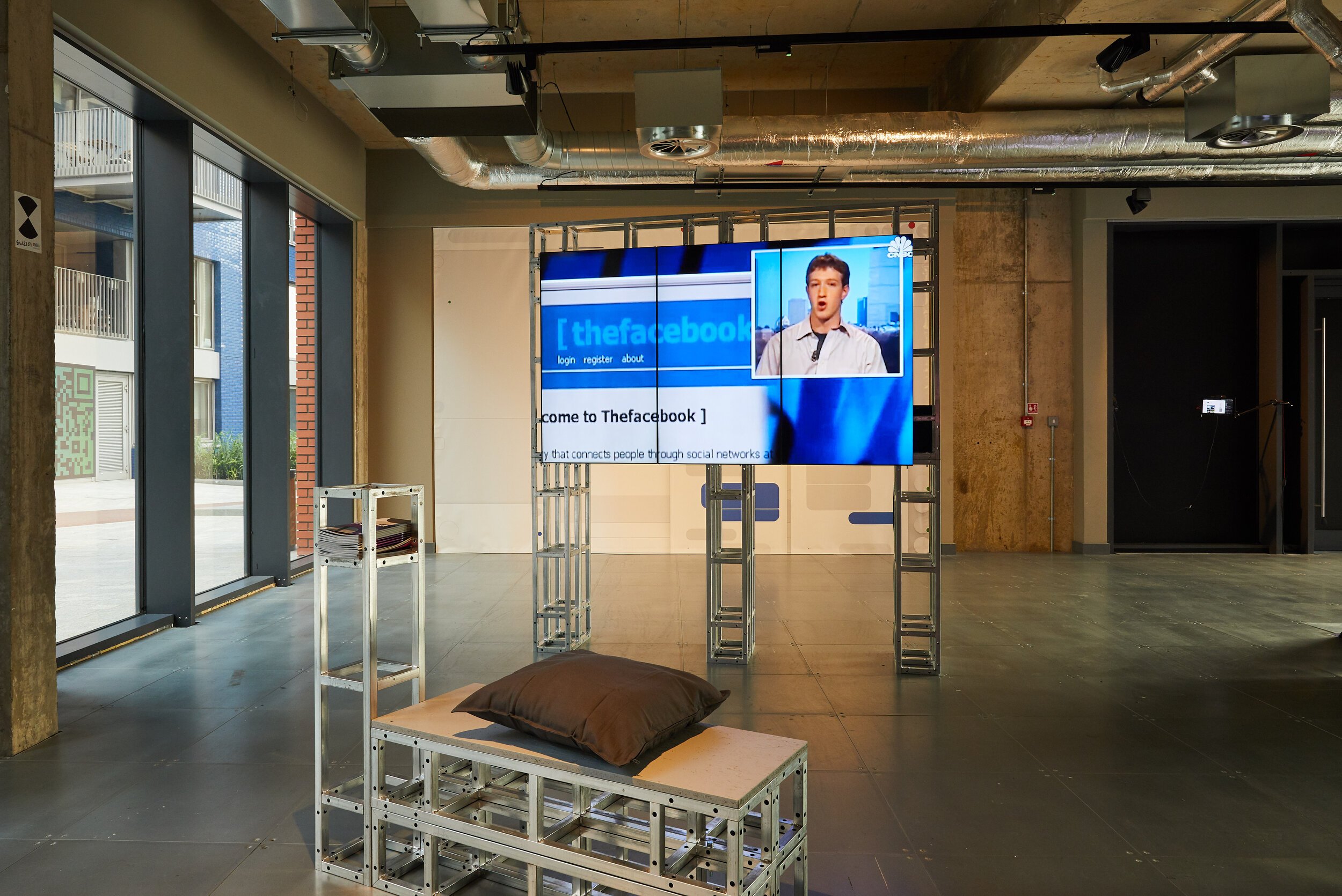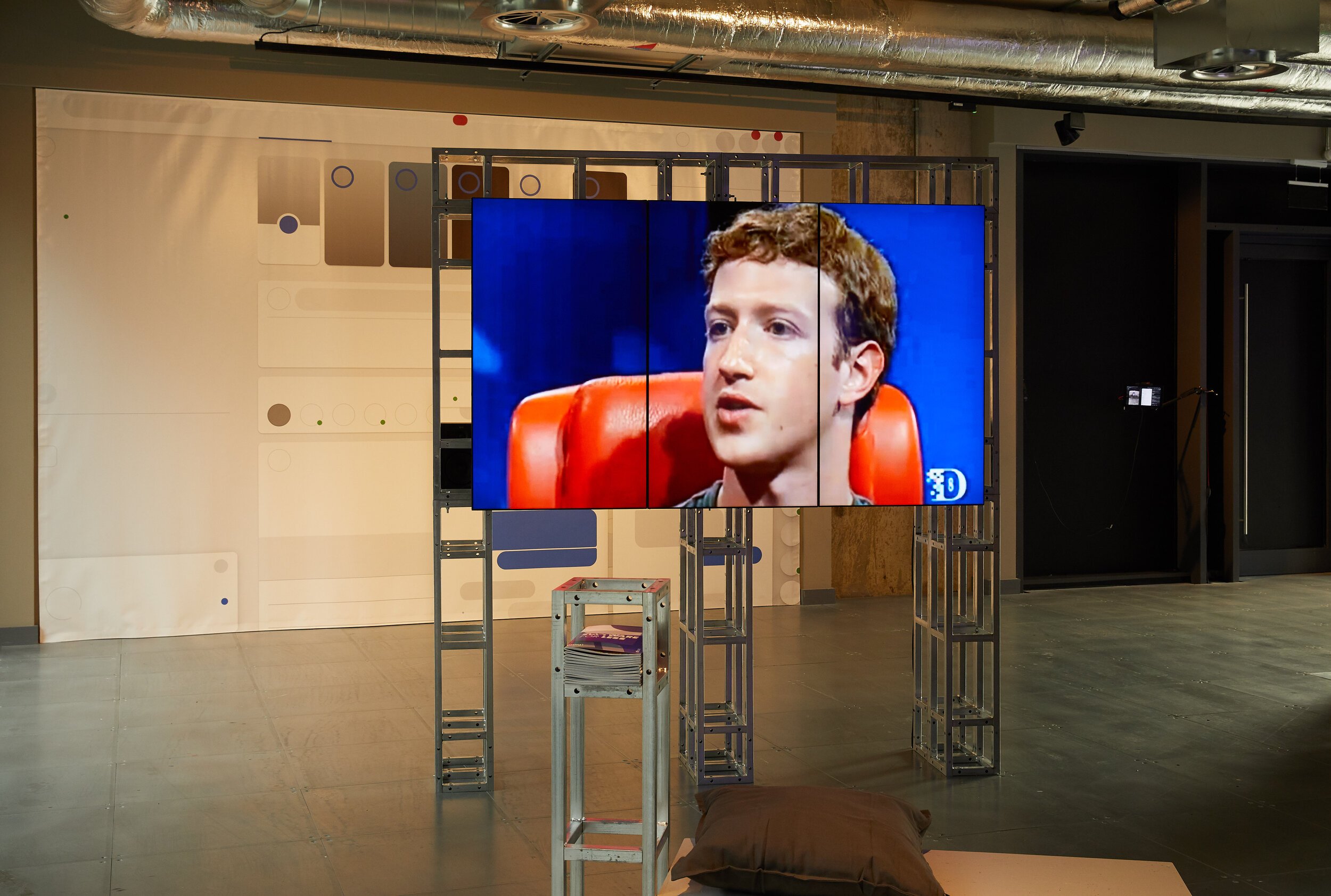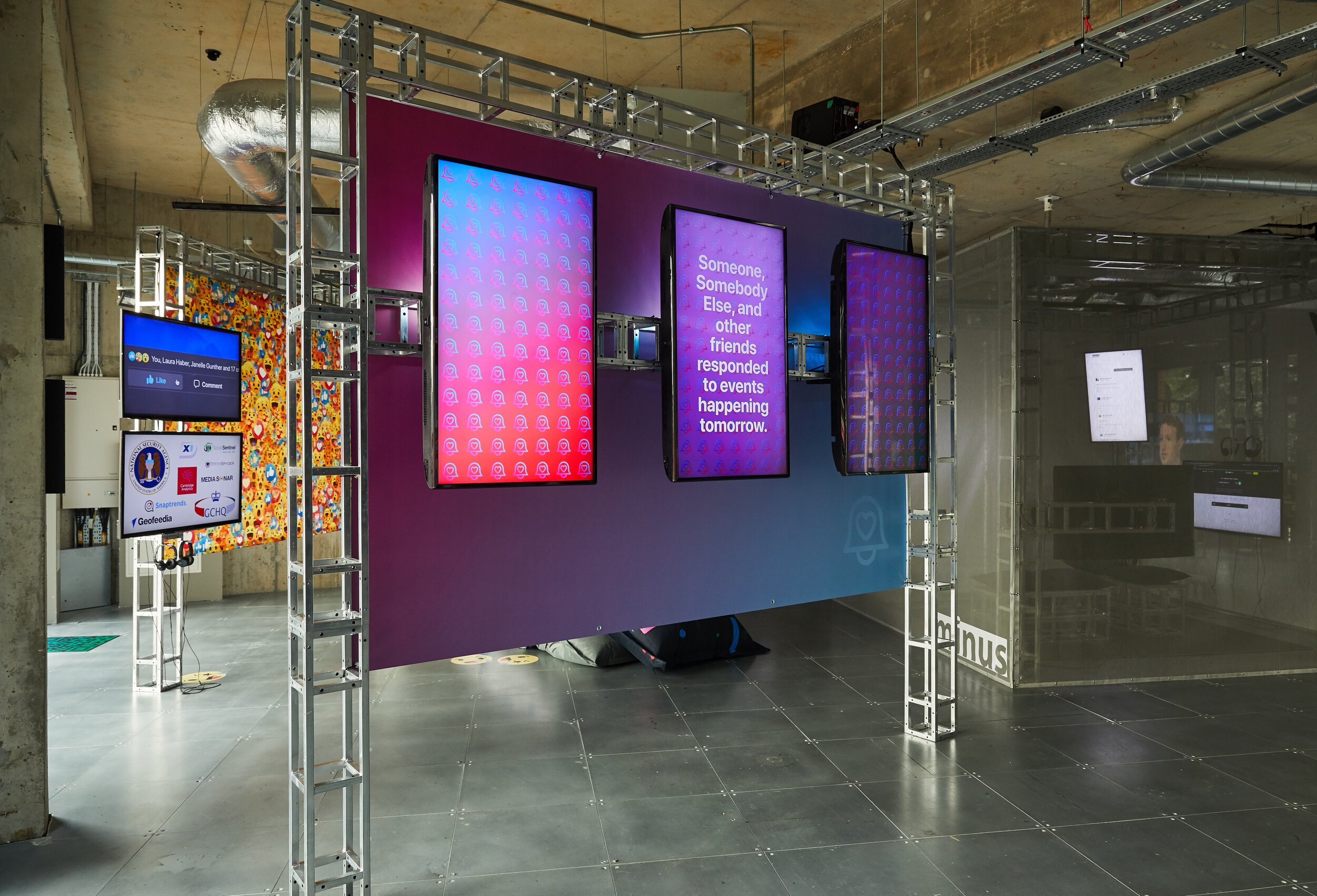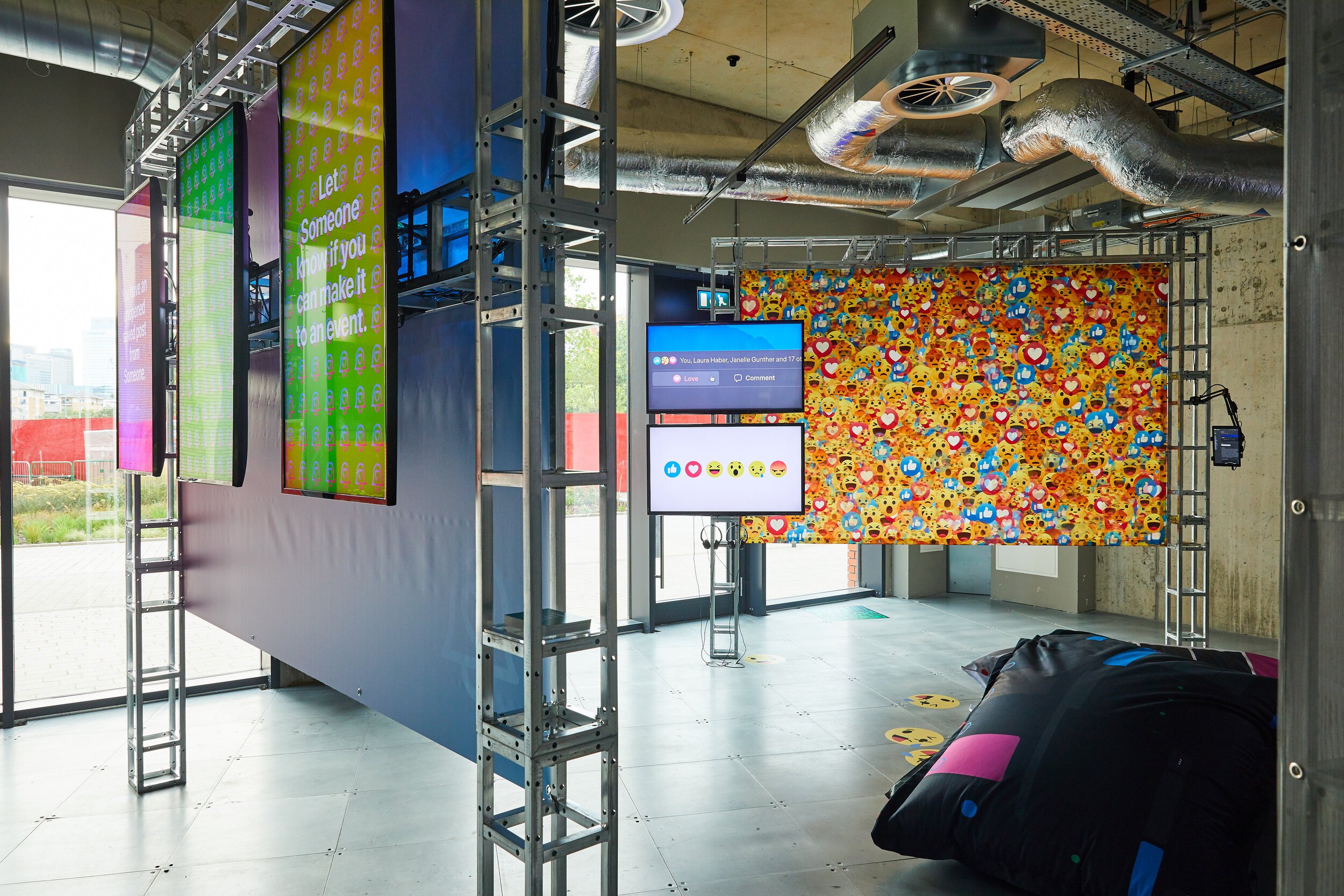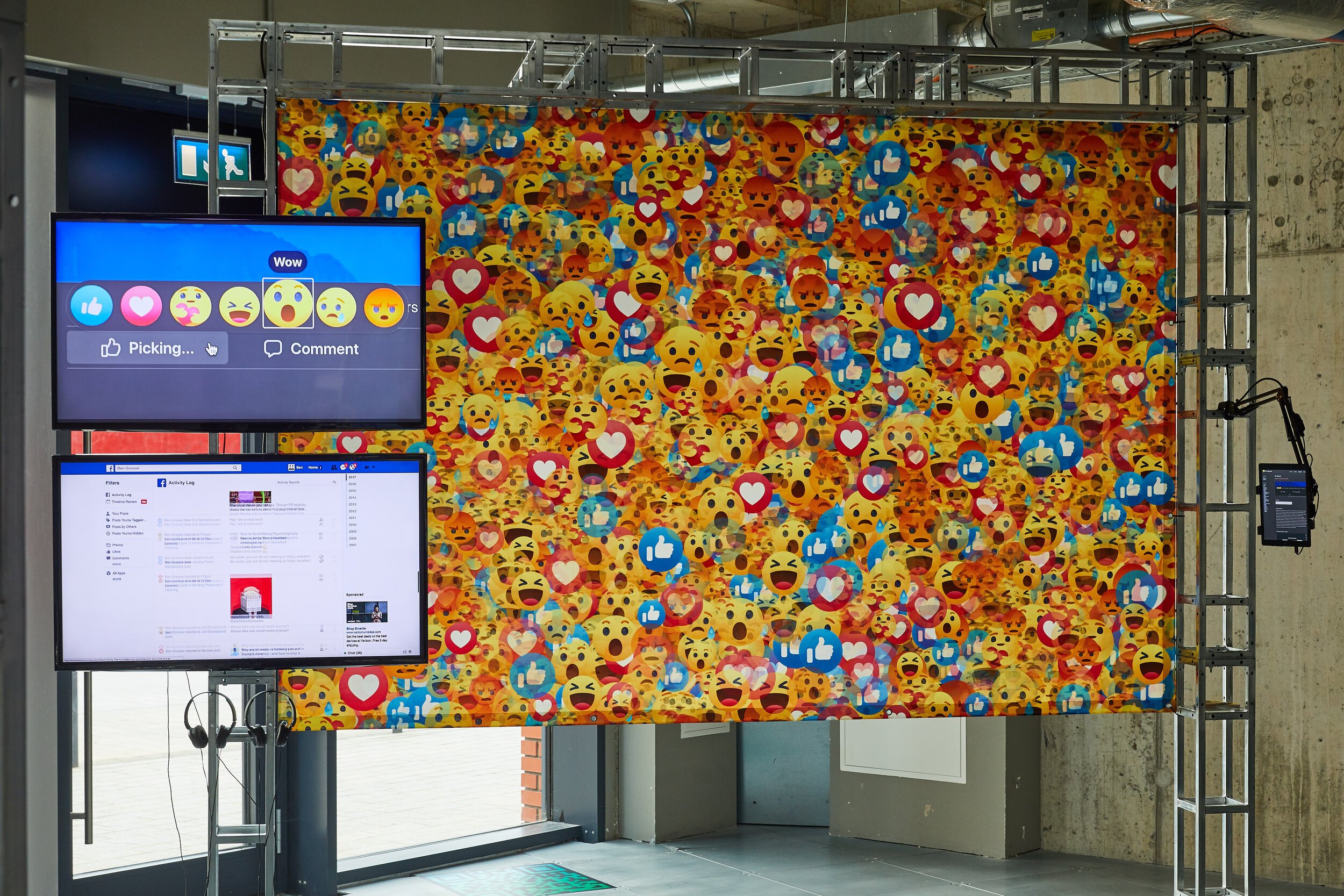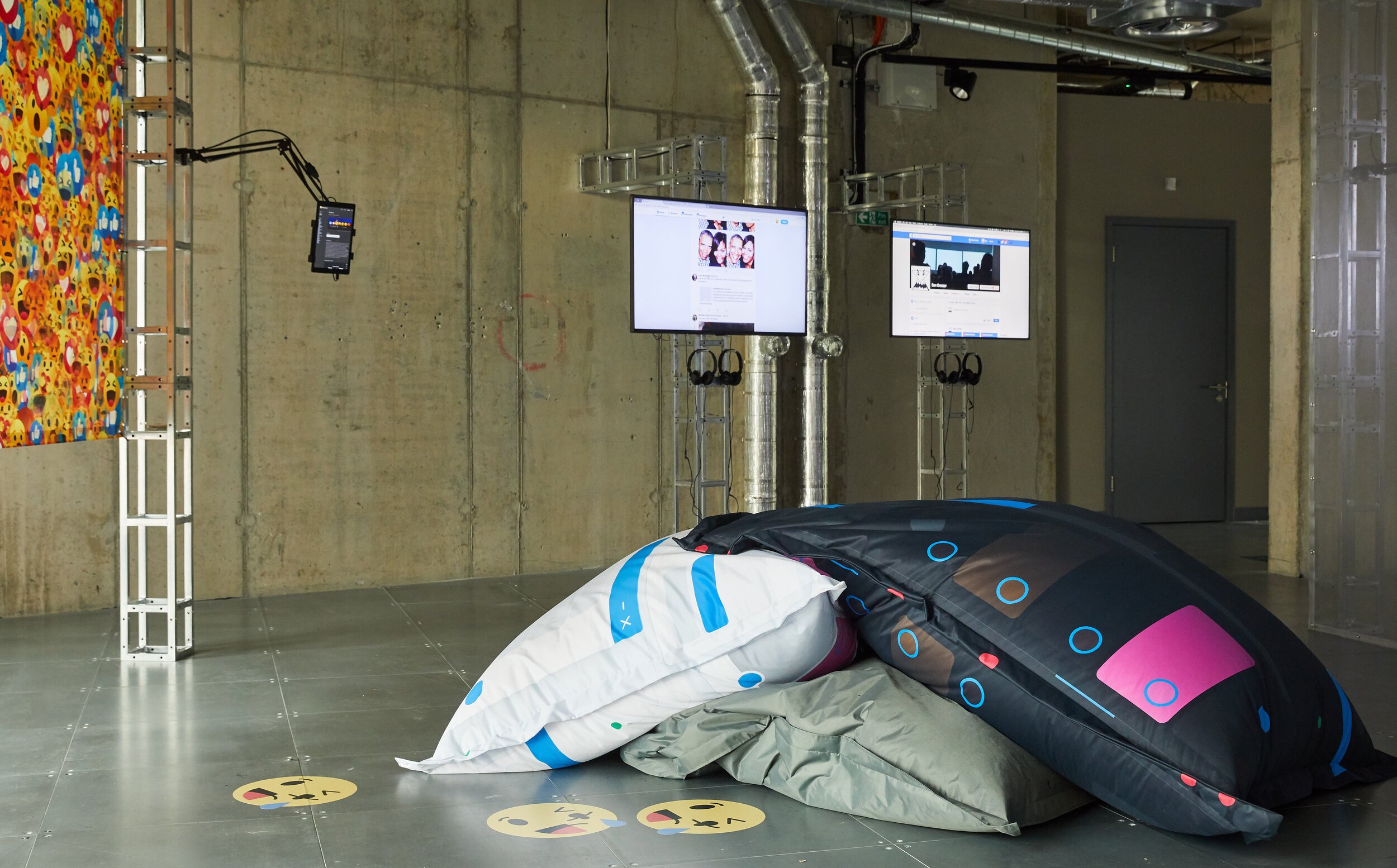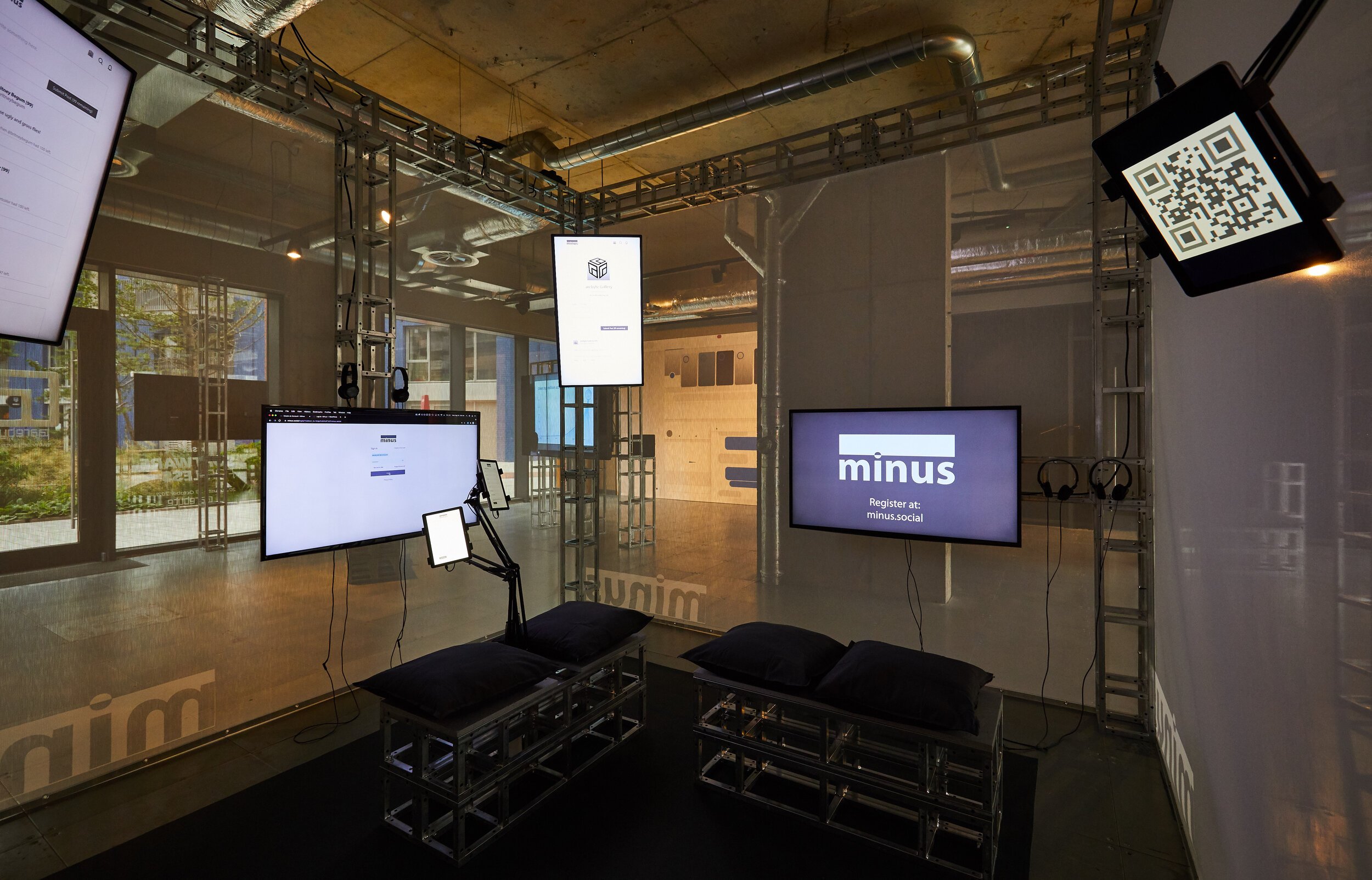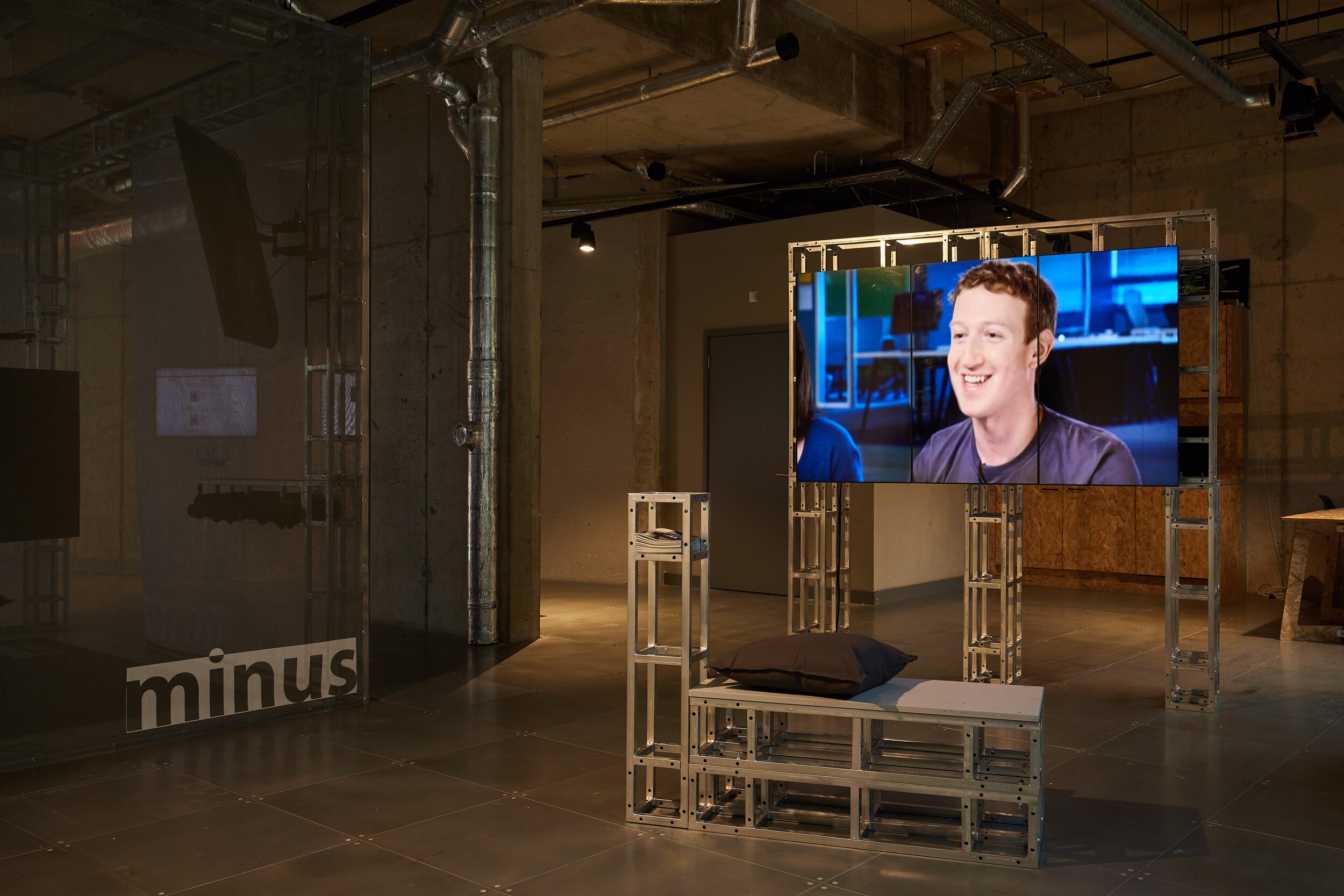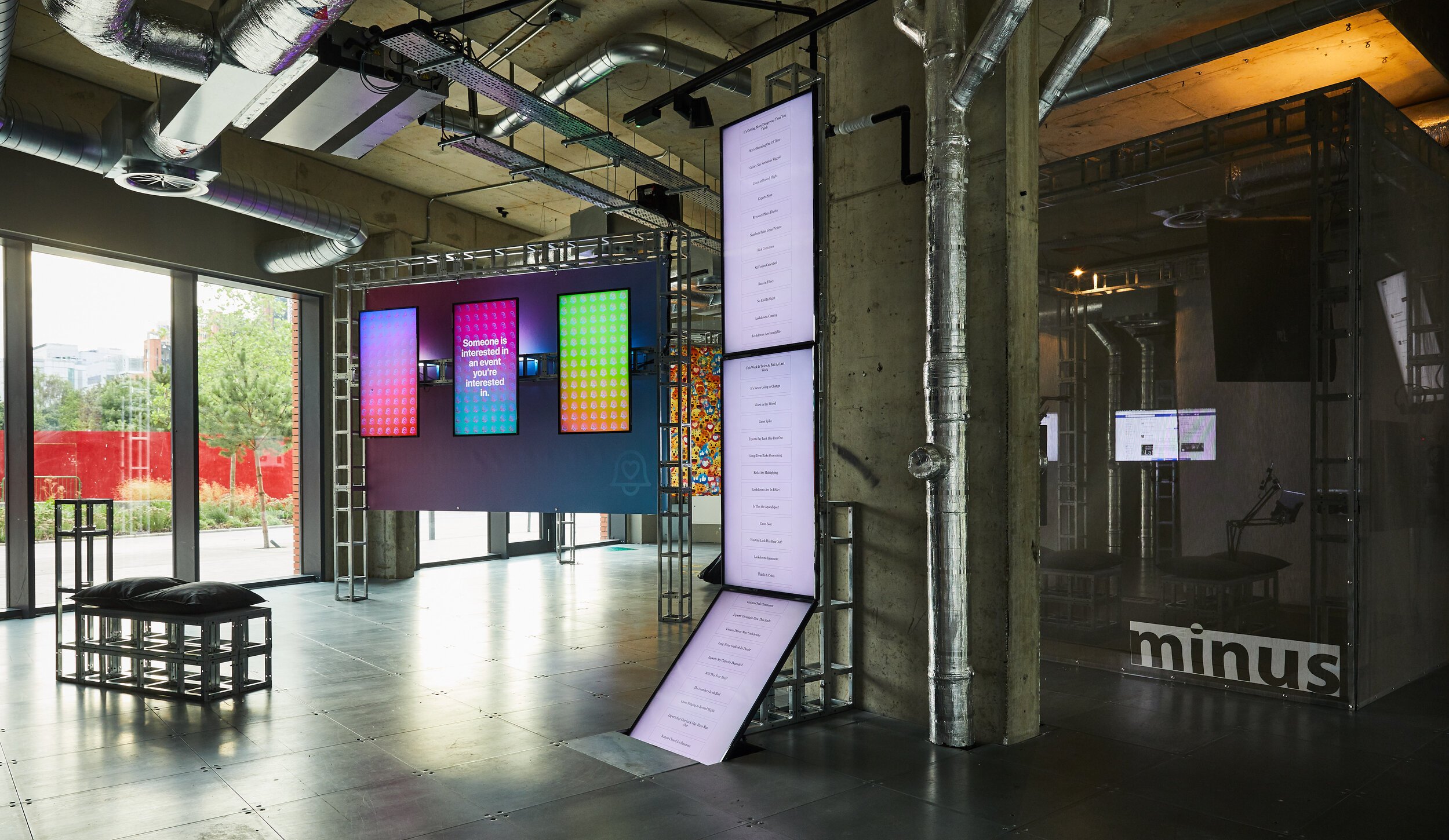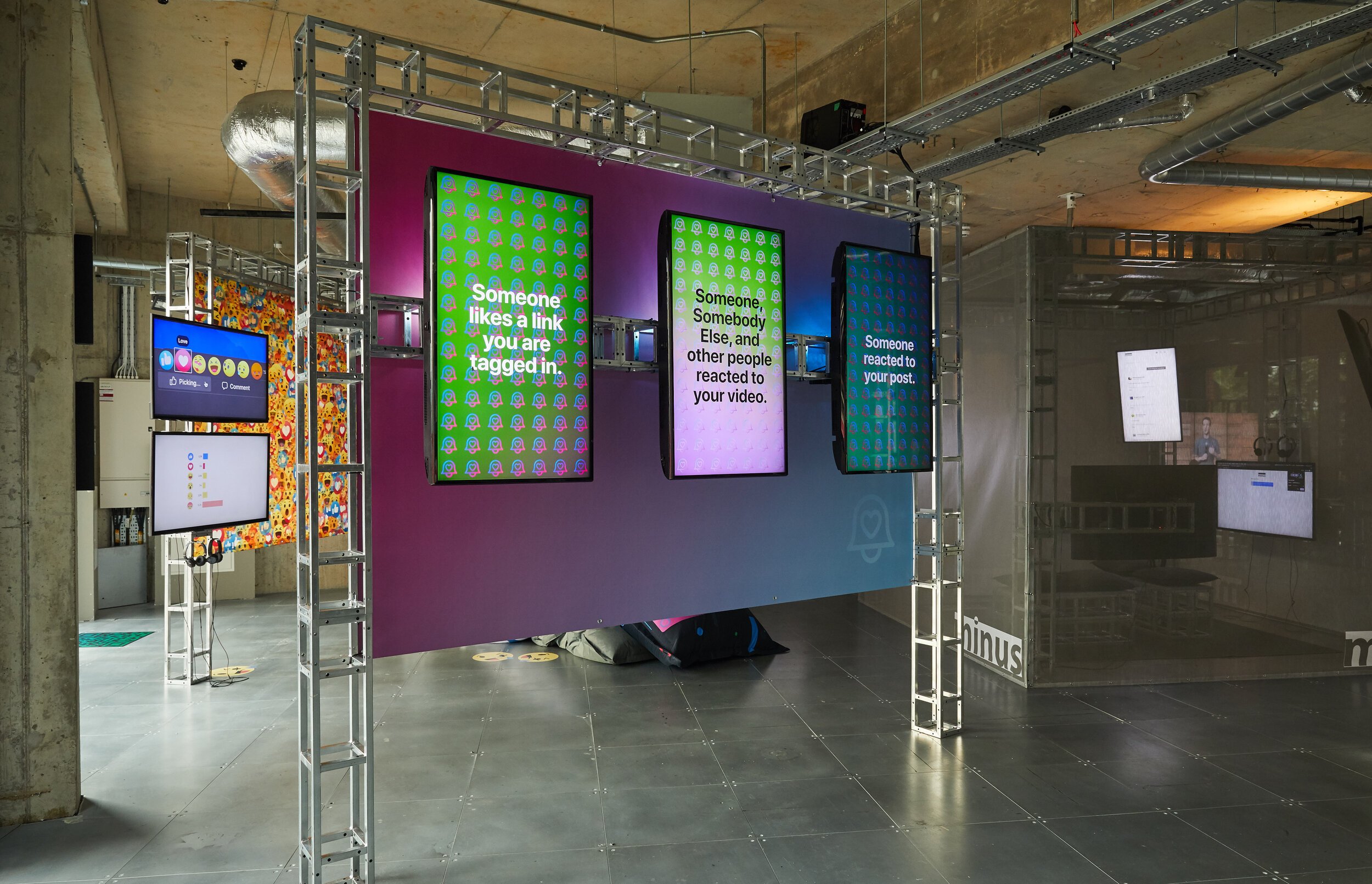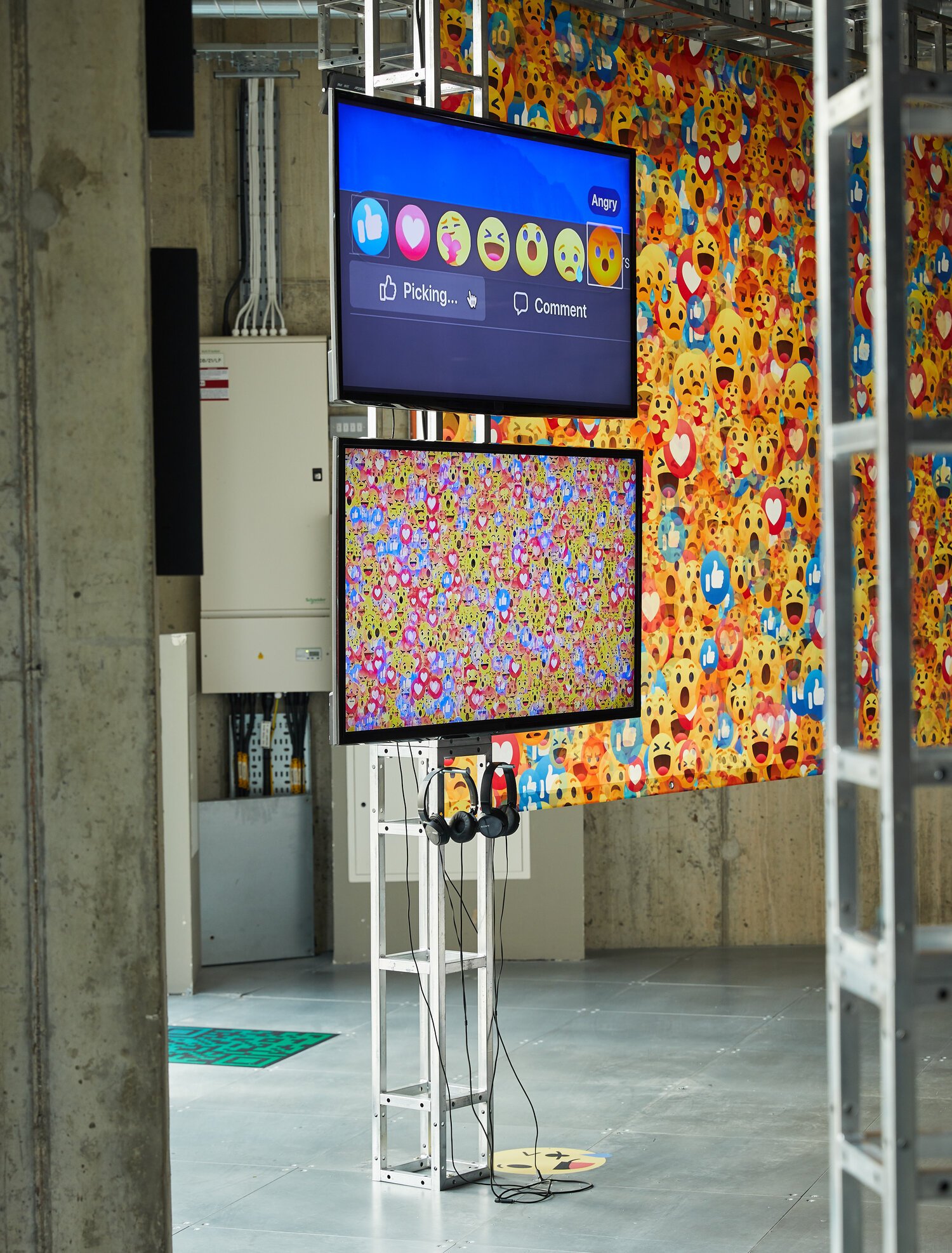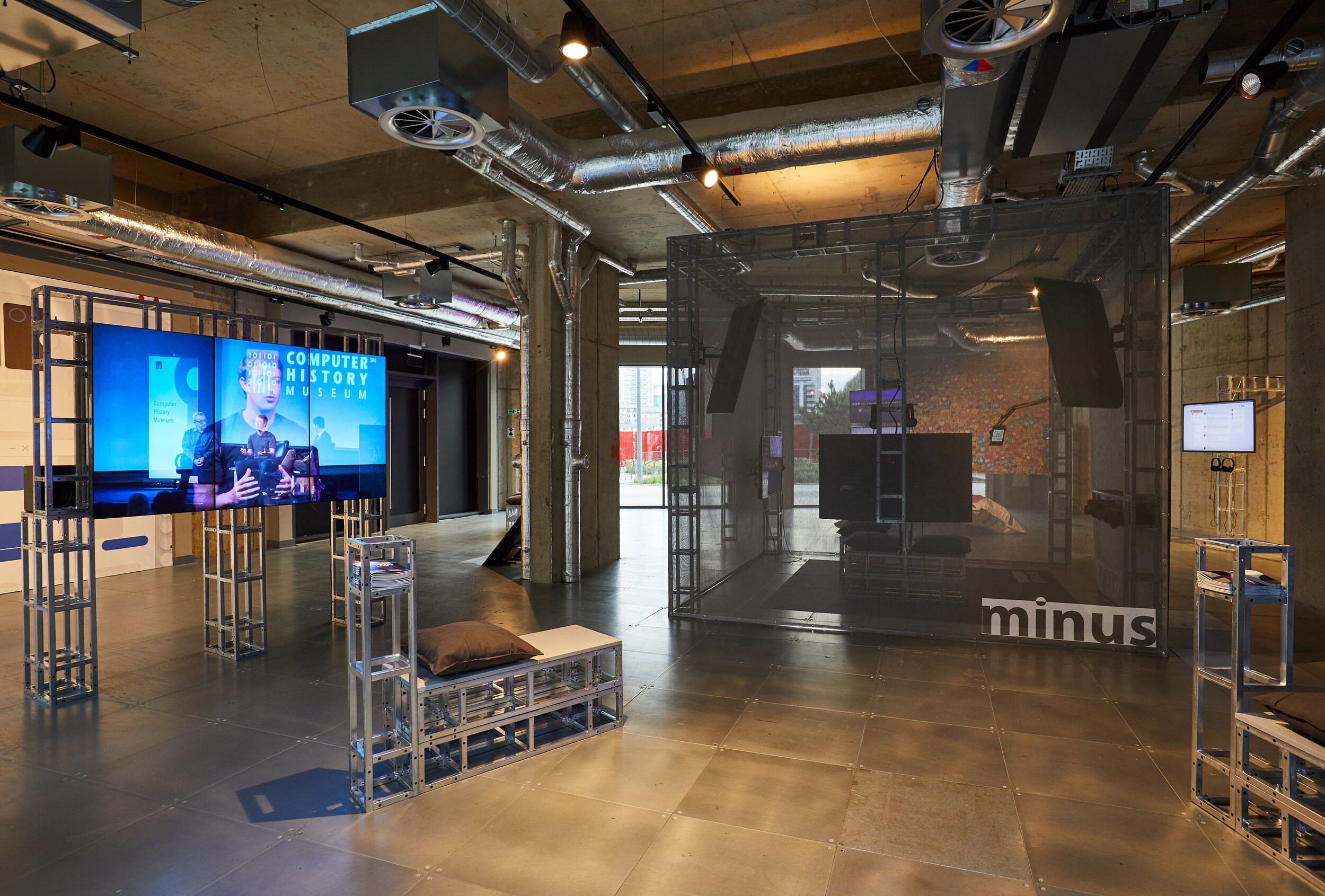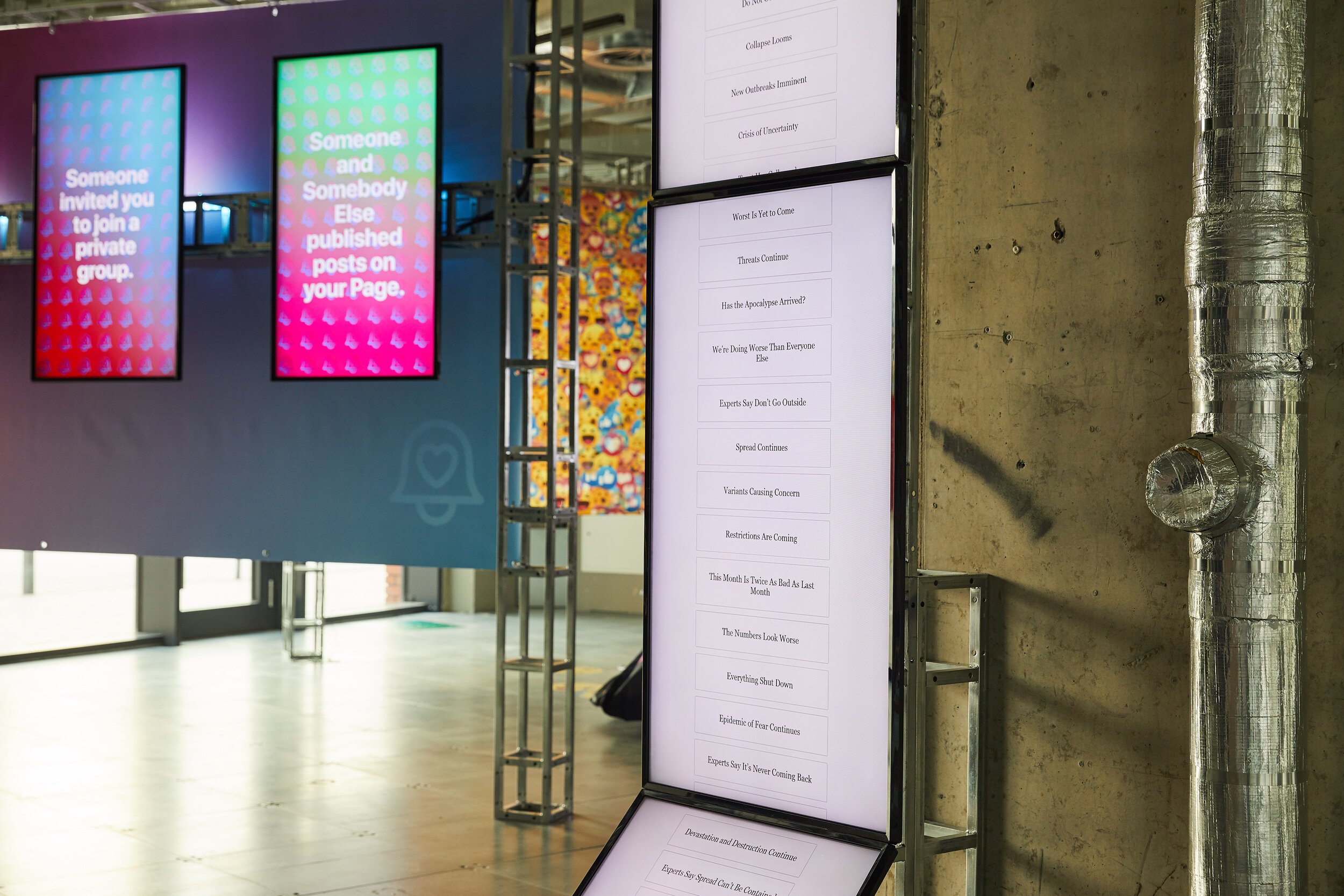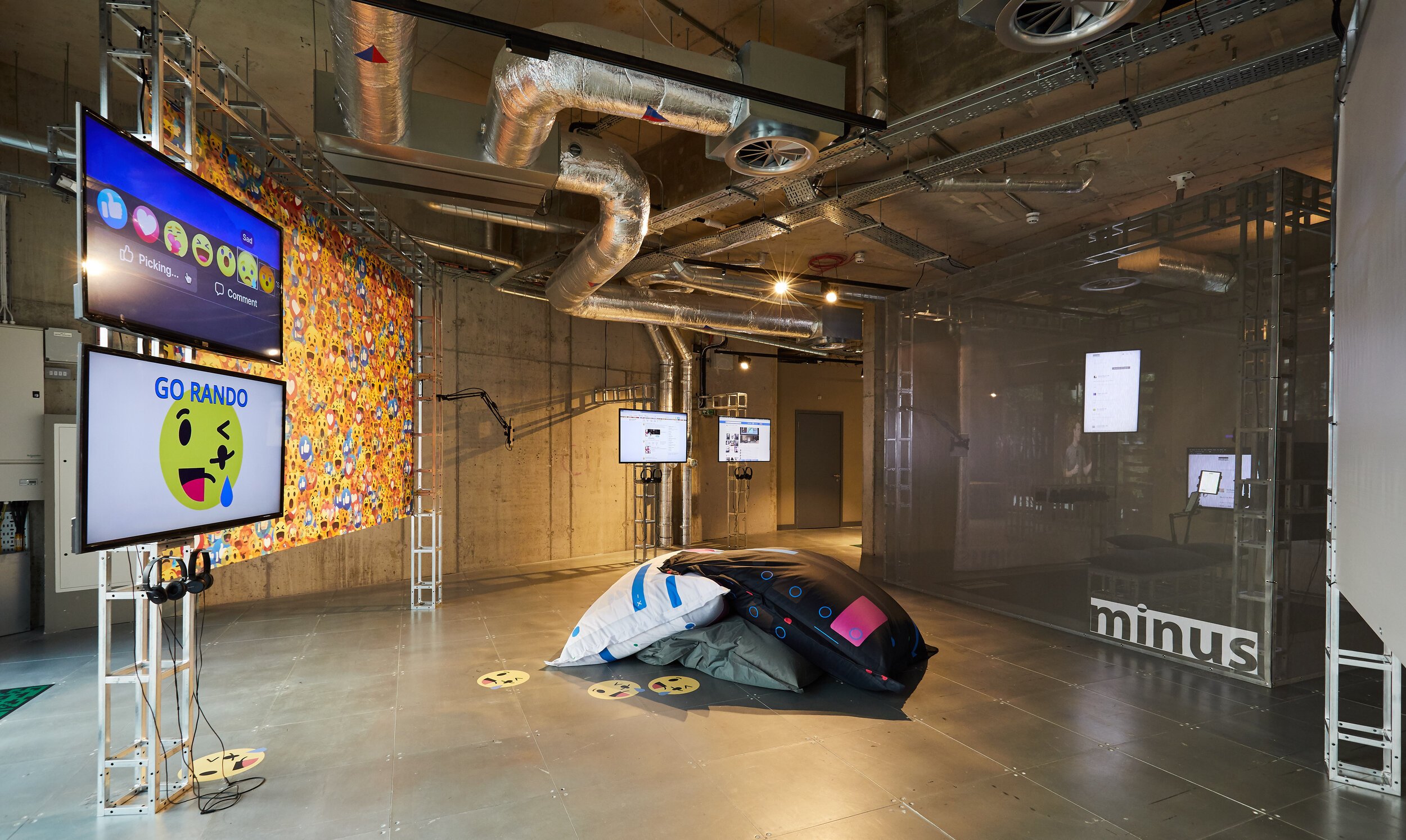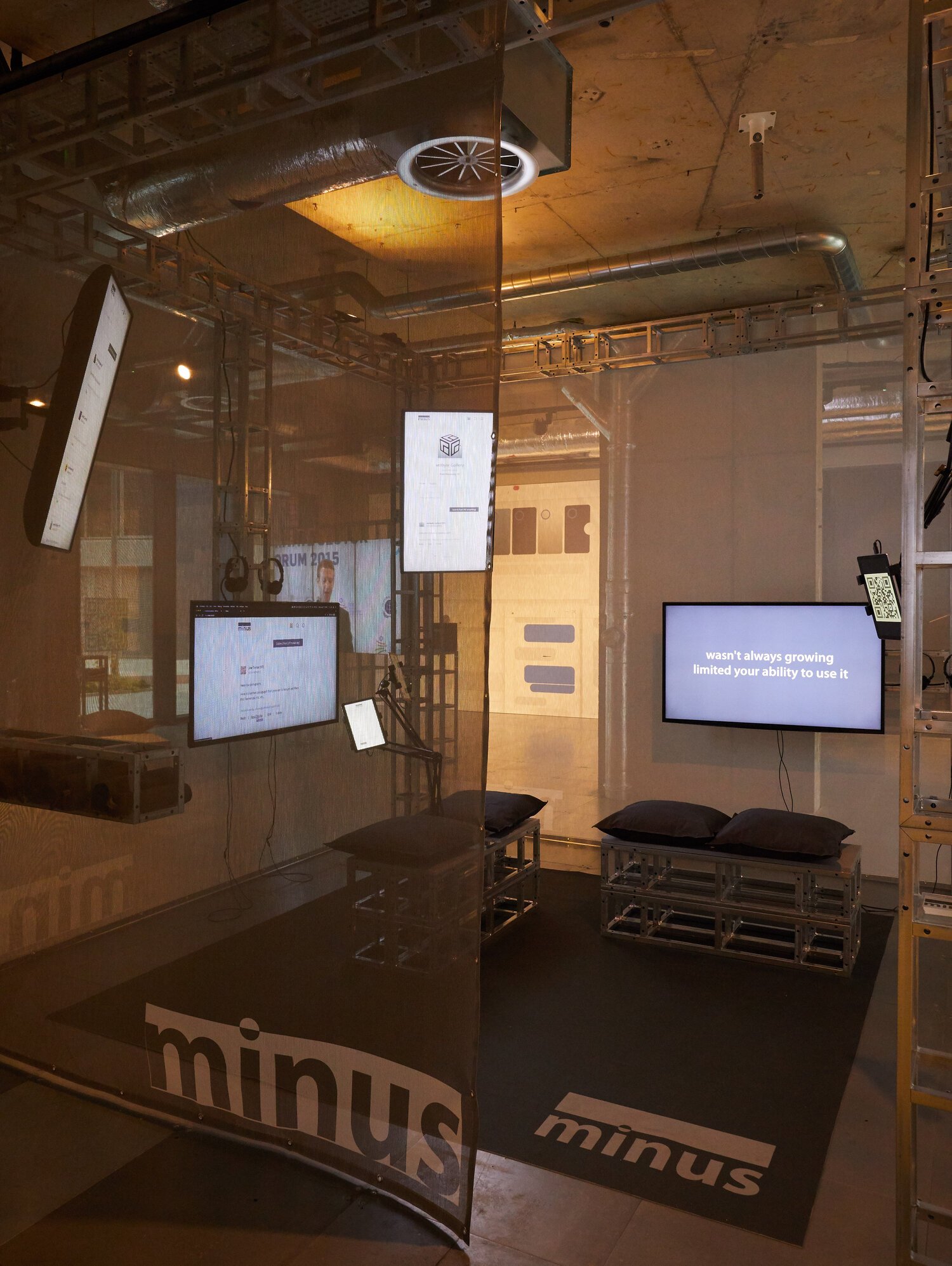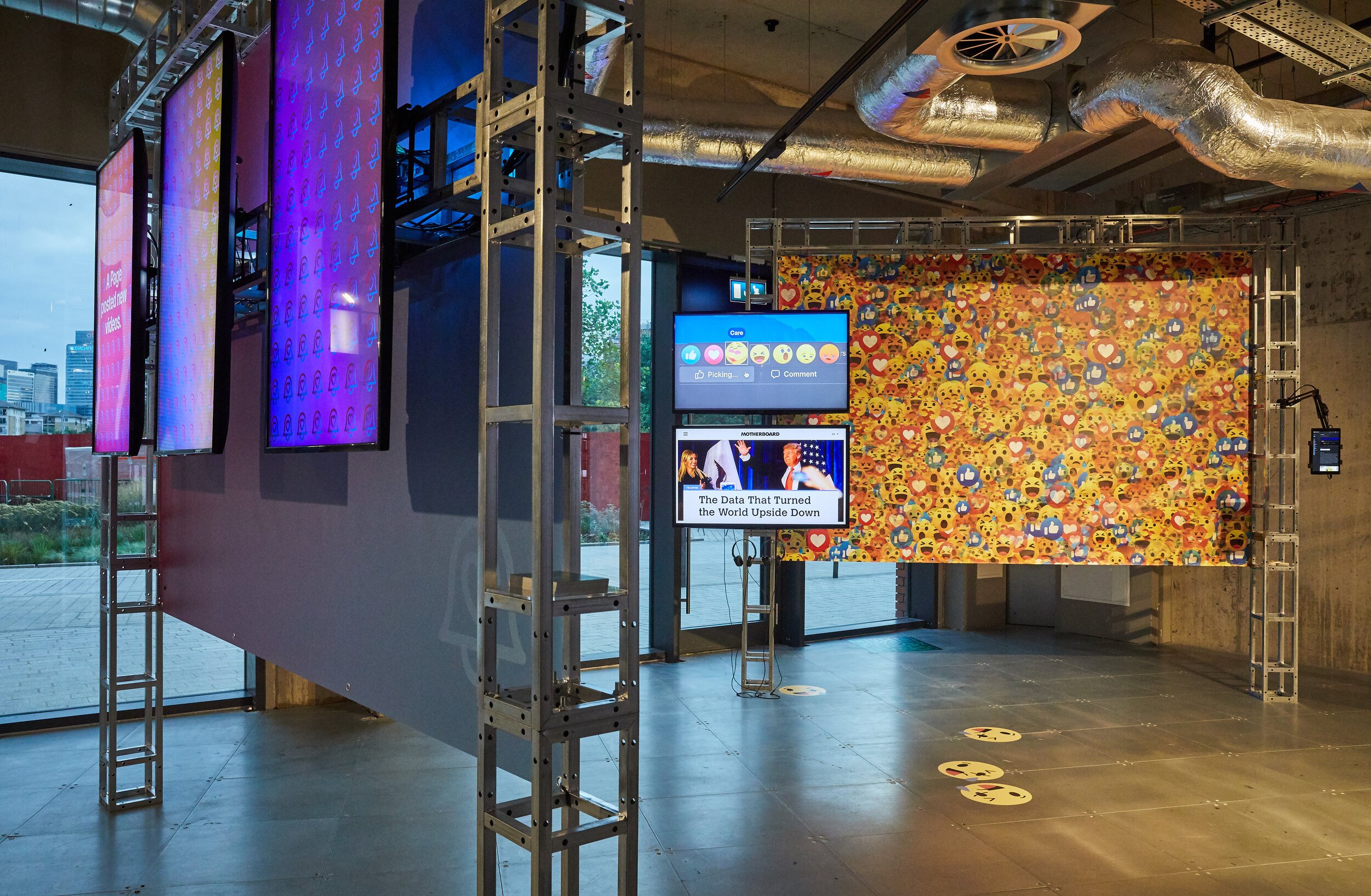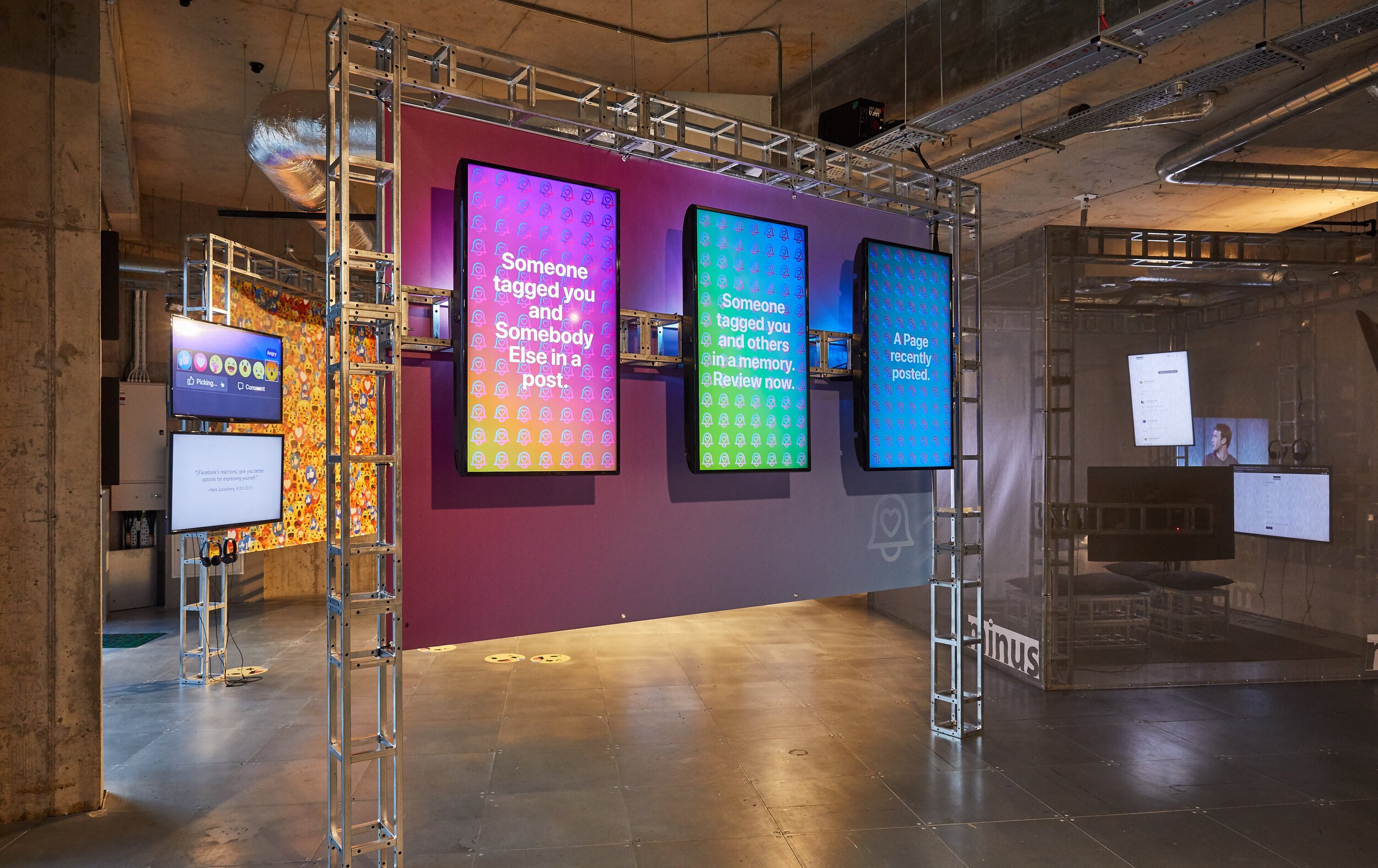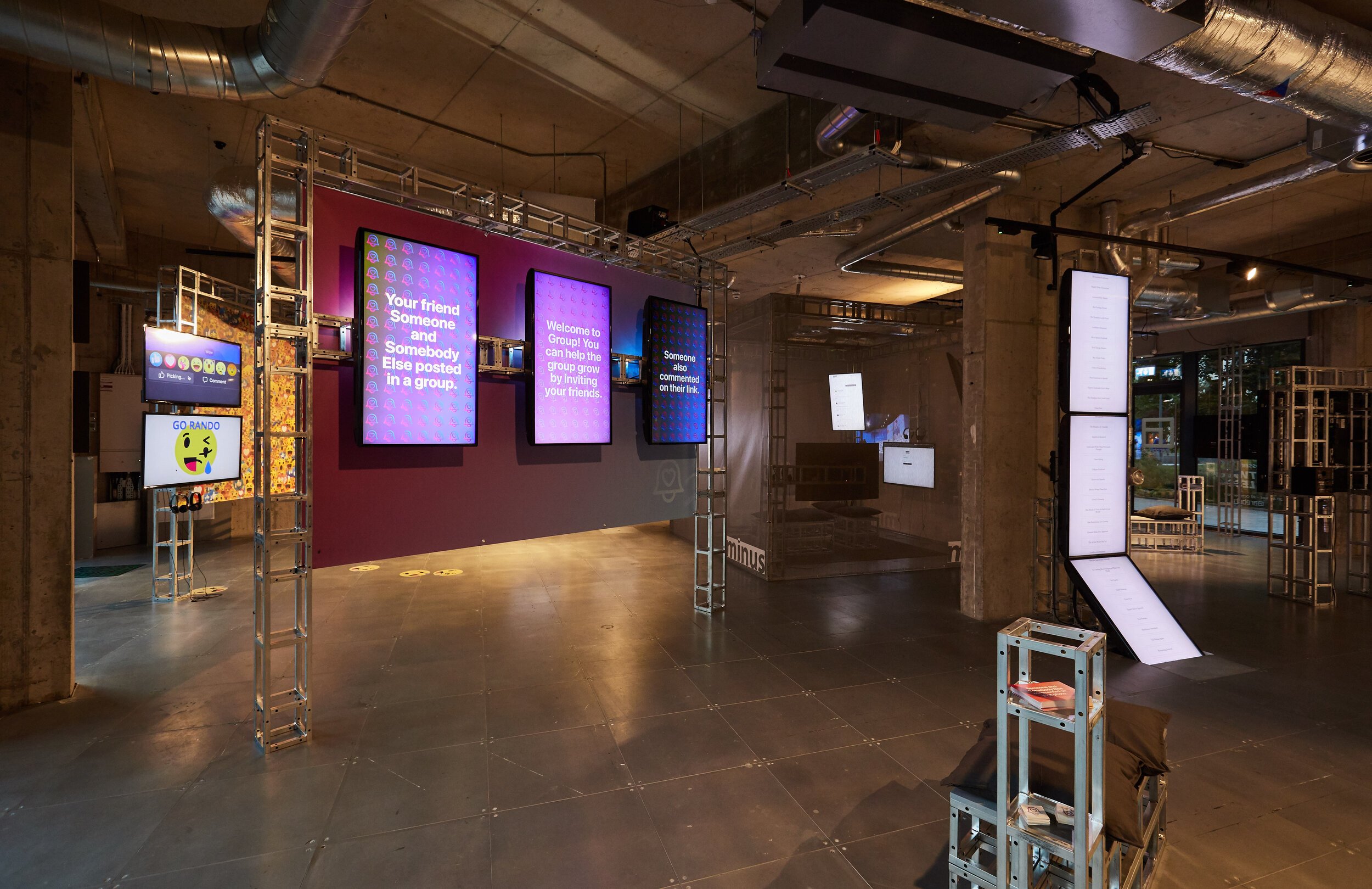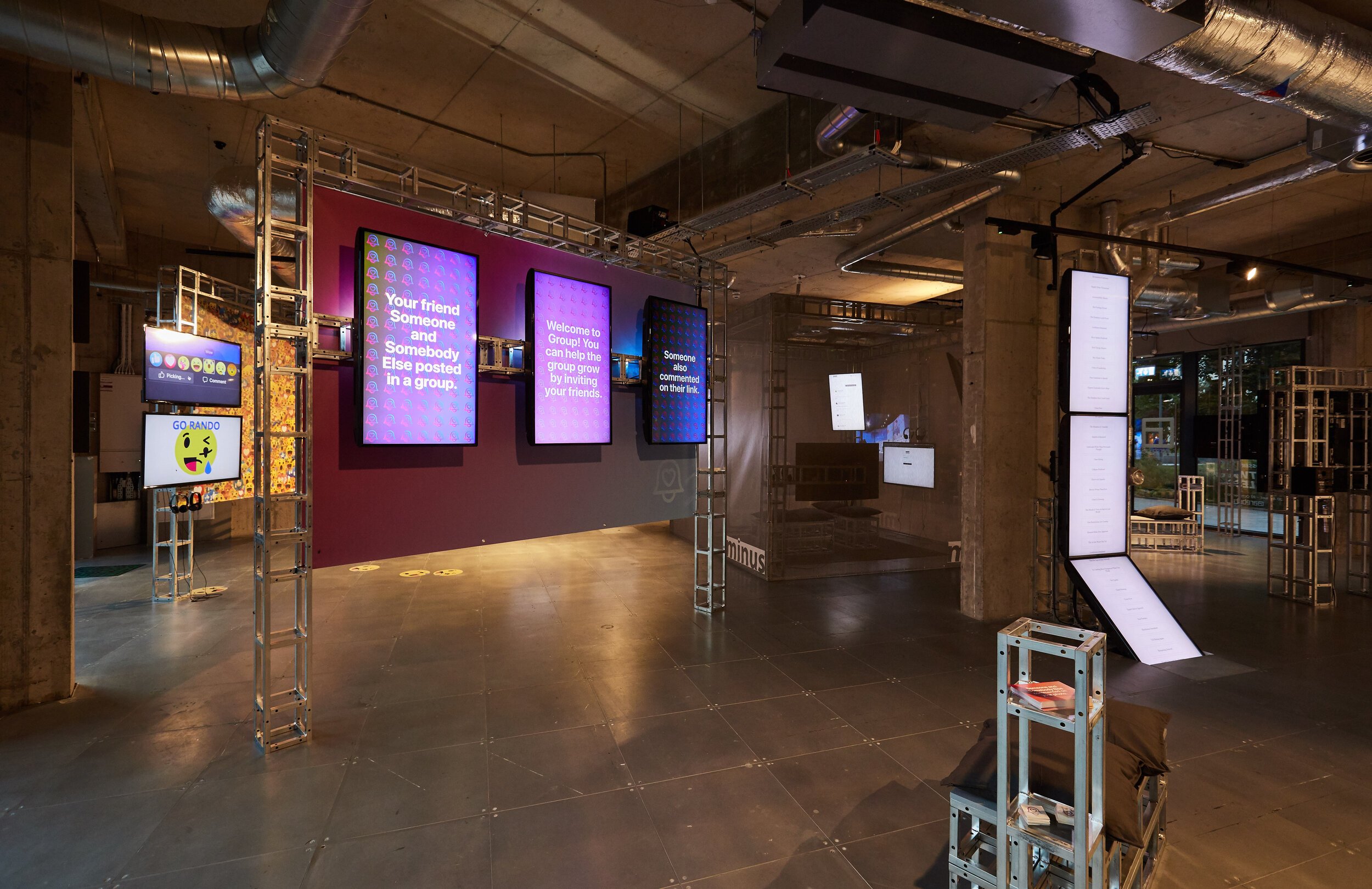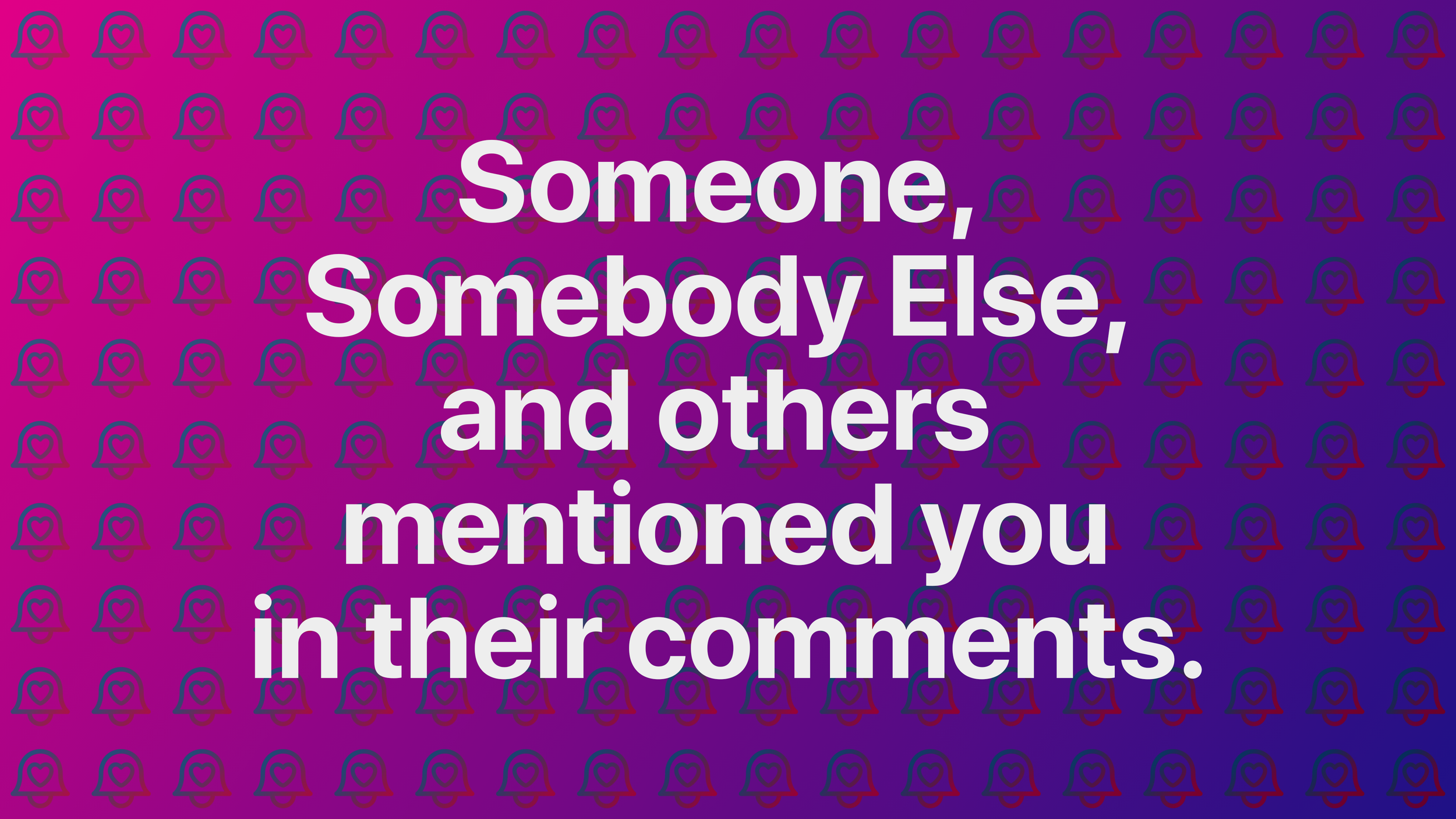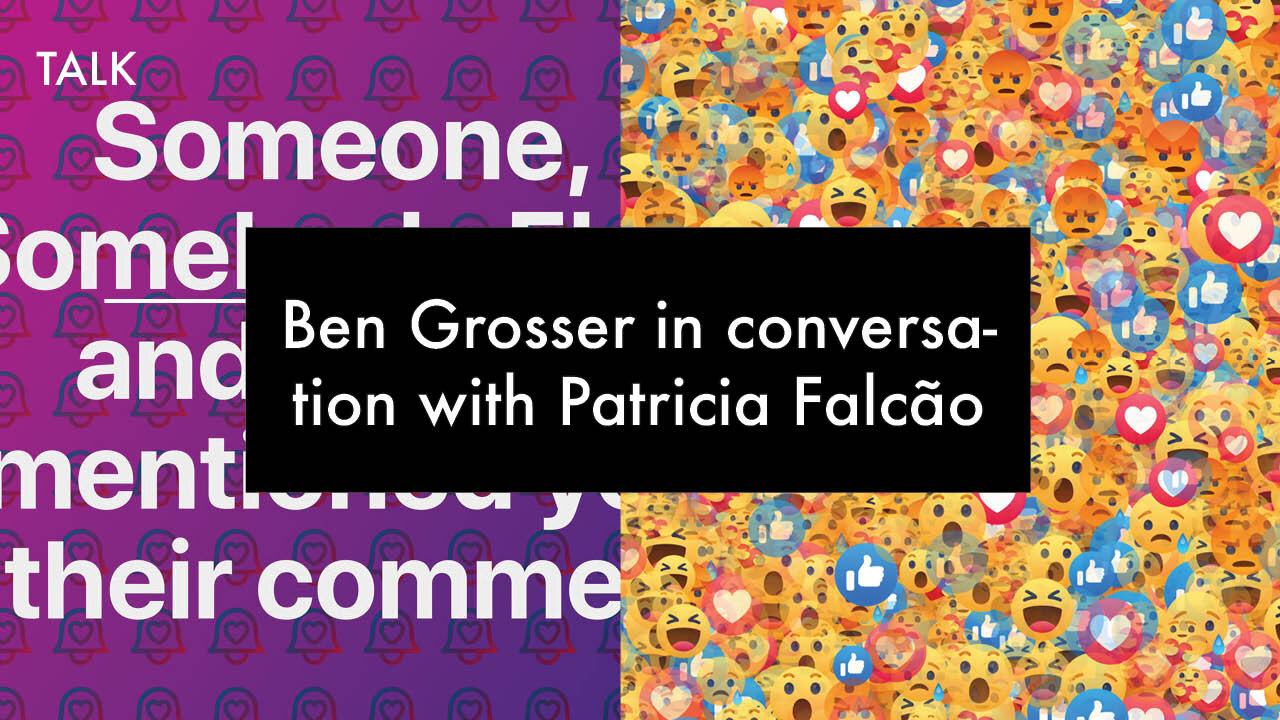Software for Less
Ben Grosser
Part of arebyte 2021/22 programme Realities
20 Aug - 23 Oct 2021
examining the cultural, social and political effects of software on contemporary society
arebyte Gallery presents Software for Less, an exhibition by US artist Ben Grosser.
Software for Less takes visitors on a journey through a pseudo tech exposition. Each work is presented as a product that could have come out of an alternative Silicon Valley, interrogating and reimagining how software is created, operated, and sold.
The exhibition provokes the viewer to consider the influence software has on us, foregrounding social media platforms as the main impetus; how is an interface that foregrounds our friend count changing our conceptions of friendship? Who benefits when a software system can intuit how we feel? Ultimately, questioning how software moulds who we are.
Grosser’s work bends and rewrites the rules of social media platforms to present the viewer with new and radically different ways of interacting within this space. The show examines big tech’s fixed spaces of consumption and prescribed interaction, as well as presenting alternative ways of experiencing them that are not guided by the principles of growth and capitalism.
Utilising custom methods such as software recomposition, techniques such as data obfuscation, and genres that include video supercuts and net art, Software For Less presents functional applications and media-based artworks that produce less profit, less data, and less users.
At the centre of the exhibition is a new platform called Minus, a social network where users only get 100 posts—for life. Rather than the algorithmic feeds, visible “like” counts, and infinite scrolls employed by big tech to induce endless user engagement, Minus limits how much one posts to the feed, and foregrounds—as its only visible and dwindling metric - how few opportunities they have left. Not software for more, but Software for Less.
Four new works have been commissioned and created especially for the exhibition: Platform Sweet Talk, Minus, and both Get Less and DEFICIT OF LESS which are in dialogue with previous successful works Get More and ORDER OF MAGNITUDE.
The exhibition further presents the existing pieces Get More, ORDER OF MAGNITUDE, Safebook, Not For You, Twitter Demetricator, The Endless Doomscroller, and Tokenize This. Go Rando and Facebook Demetricator are also included, the former having been recently rewritten for the exhibition’s opening and the latter scheduled for rewriting during its run through a series of live coding sessions.
EVENTS PROGRAMME
Opening Event
Thur 19 Aug 2021, 6 - 9pm BST
Panel discussion with Ben Grosser, Wendy Hui Kyong Chun, Matthew Fuller and Joana Moll.
Thur 14 Oct, 7 - 8.30pm BST
This event aims to discuss software as culture, the politics of interface, and the power (im)balance between user and corporation within today’s digital technologies and social media platforms.
Workshop: Recomposing the Web: Tools and Techniques to Regain Agency in a Software-Driven World (online)
Sat 25 Sept, 7 - 10pm
Through a series of software observation and online performance exercises, this workshop introduces methods, tools, and techniques of software recomposition that anyone can use to gain renewed agency over the software systems they use every day.
Facebook Demetricator Live Coding Sessions
Thur 8 Sept, 23 Sept, 7 Oct and 21 Oct,1
11pm CDT / 5am BST on Twitch
Behind the scenes of Ben’s practice and watch him as he re-writes the code for one of his demetricator works – The Facebook Demetricator.
READ THE EXHIBITION BOOKLET
Guest contributors: Rachel O’Dwyer, Rebecca Edwards
The last twenty years have been characterized by the rise of software. Software has enabled the web, animated the smartphone, and made possible, in the words of one big tech CEO, a world “more open and connected.” Yet software, which is now used by billions across the planet every day, has embedded within it the capitalist ideologies of those who make it. Coming out of growth-obsessed entrepreneurial culture from Silicon Valley in the United States, today’s software wants what its creators want: more. This want is fundamental, driving how software works, what it does, and what it makes (im)possible. The result is a global populace now dependent on software platforms that intentionally activate within users a “desire for more,” a need software meets with its “like” counts and algorithmic feeds and endless notifications, all in service of what big tech most seeks to realize their hopes and dreams: more users, more data, and more profit. And though wealth and fame has come to those who craft the platforms, their relentless focus on growth and scale has left a trail of destruction across society. Mental health, privacy, and democracy are all diminished, while authoritarianism, racism, and disinformationism are emboldened. Twenty years after the rise of software, big tech’s drive for more has transformed its most lauded asset into its biggest liability.
After years of artistic efforts to define, examine, reveal, and defuse how software activates the desire for more—to “demetricate” social media, to defuse emotional surveillance, to confuse big data algorithms, and to track and trace how the politics of interface become the politics of humanity—this exhibition presents the first outcomes from a new experiment, one that aims to generate a Software for Less. How would users feel if software platforms actively worked to reduce engagement rather than to produce it? What if software interfaces encouraged conceptions of time that are slow rather than fast? Why can’t software want less instead of more? Utilizing custom methods such as software recomposition, techniques like data obfuscation, and genres that include video supercuts and net art, Software for Less introduces functional applications and media-based artworks that tackle those questions, presenting works that produce less profit, less data, and less users. It includes a social network that aims to limit compulsions to use it, systems that make AI-driven feeds less attractive to those they profile, and the artifacts from investigations that reveal how a tiny few manipulates a broad public into a hyper state of more—and how disrupting that manipulation could point the way towards an alternative future. Not software for more, but Software For Less.
Ben Grosser, 20 July 2021
ARTWORKS
Ben Grosser, still from Platform Sweet Talk (2021).
Ben Grosser, ORDER OF MAGNITUDE, video supercut, 2019 (gif)
Ben Grosser, Go Rando, web browser extension, (2017/2021).
ARTIST BIO
Ben Grosser creates interactive experiences, machines, and systems that examine the cultural, social, and political effects of software. Recent exhibition venues include the Barbican Centre in London, Museum Kesselhaus in Berlin, Museu das Comunicações in Lisbon, and Galerie Charlot in Paris. His works have been featured in The New Yorker, Wired, The Atlantic, The Guardian, The Washington Post, El País, Libération, Süddeutsche Zeitung, and Der Spiegel. The Chicago Tribune called him the “unrivaled king of ominous gibberish.” Slate referred to his work as “creative civil disobedience in the digital age.” Grosser’s artworks are regularly cited in books investigating the cultural effects of technology, including The Age of Surveillance Capitalism, The Metainterface, Critical Code Studies, and Technologies of Vision, as well as volumes centered on computational art practices such as Electronic Literature, The New Aesthetic and Art, and Digital Art. Grosser is an associate professor in the School of Art + Design, and co-founder of the Critical Technology Studies Lab at the National Center for Supercomputing Applications, both at the University of Illinois at Urbana-Champaign, USA.
TALKING HEADS
Experts within the digital arts sector are invited to review and discuss the works of the exhibiting artist.
PANEL CONVERSATION
DESKTOP TOUR
Series hosted by artist Marc Blazel where artists talk through their desktop, key folders, bookmarks, and software they use in their work.
ARTIST TALK
Ben Grosser talks about Software for Less, and discusses relevant themes and topics explored throughout the exhibition.
